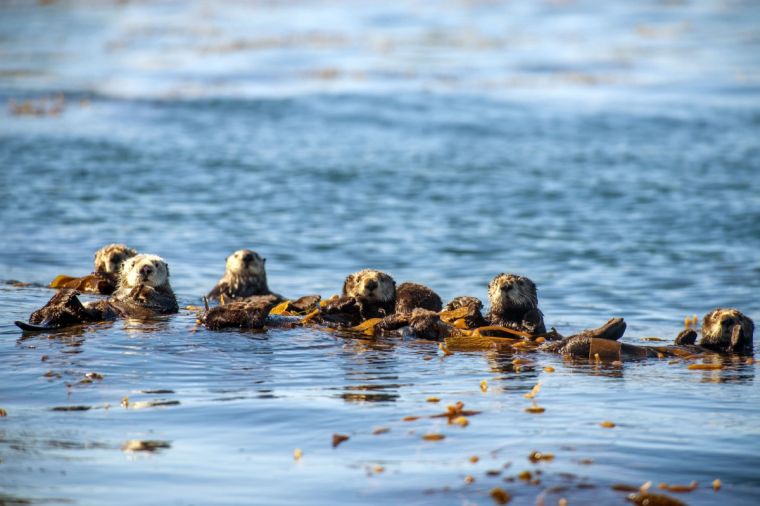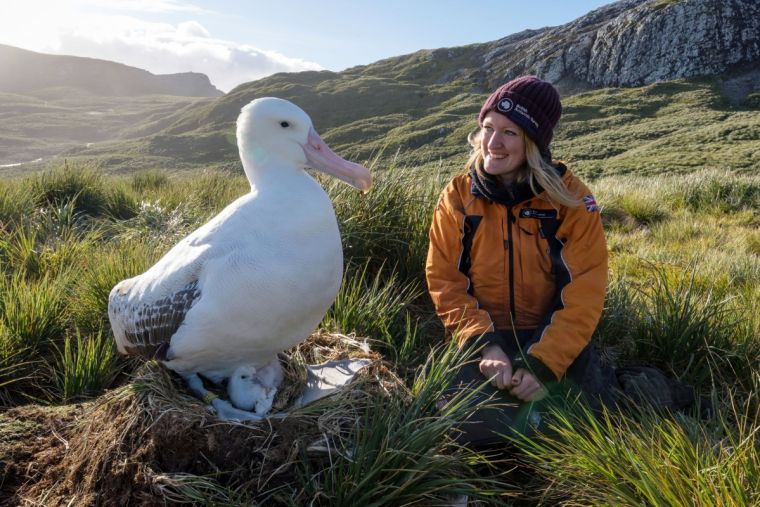Why we should try Blue Planet living
Let's get some stuff out of the way right at the start as we reach the end of the amazing Blue Planet II BBC series. Yes, the problems highlighted in this final episode – particularly plastic pollution, climate change and overfishing – are huge and feel insurmountable. And yes, a lot of the problems are caused by other countries and industries, and not only by those of us who have been watching. Now let's move on.
What David Attenborough and the incredible team at the BBC have done for us is provide us with a vision of what our seas and oceans should be like: healthy and teeming with life; colourful, vibrant ecosystems full of creatures and patterns beyond our wildest imaginations (a fish that can see through the top of its head? No way!); weaving, spinning, jumping, flying around each other.

As I've been watching Blue Planet II, each episode has hinted at the devastating consequences our human activities are having on this beautiful part of the world. I could hardly make it through to the end of this last episode, even with the positive stories that are bringing hope; the knowledge of what we are doing is almost too much to bear.
A drop in the ocean
But we CAN do something about it. We really, really can. And there are three very obvious things we can all do now as Blue Planet II concludes. The waters we've been marveling at over our Sunday evenings come from billions of tiny drops. Each one of us, with each of the actions we take, can be a drop too, building a wave of momentum that creates a sea-change in our attitudes and turns the tide on the fate of our seas and oceans. As Attenborough says, 'We have a responsibility to care for our blue planet. The future of humanity, and indeed all life on Earth, now depends on us.' As Christians, we know that already, but what can we do to help?
1. Reduce your plastic
Seriously people, the time has come for us to do something about this. There are so many simple things we can do to make some big reductions: don't buy any more single-use plastic bottles (just don't – full stop). Use soap and shampoo bars. Try to buy things in bulk rather than in smaller individual bags. Become aware of the problem of microplastic pollution from synthetic clothing. Avoid cosmetics with microbeads, and ladies, ditch the tampons with plastic applicators. Finally, keep nagging your favourite shops to reduce unnecessary packaging.

2. Take action on climate change
As sea temperatures continue to rise due to climate change, causing massive problems for all sea creatures great and small (and for the humans too who depend on the seas for their food and livelihoods), it becomes clear that if we want to look after our seas and oceans then we have to tackle climate change. We can do that in two ways. Firstly, take steps to live in ways that consume less energy (eat more plant and grain-based meals, have more holidays that don't involve flying, get out of your car more etc), and secondly, let's push our global leaders to turn the historic promises they made in the Paris Agreement in 2015 into reality. You can do that here, through an excellent campaign called Renew Our World.]
3. Eat your fish well
This is quite easy really – we just need to make a decision to do it and stick to it. The basic rule is, when buying wild fish or seafood, only buy it if it carries the Marine Stewardship Council logo on it. This blue fish-tick logo is your guarantee that the fish or seafood comes from a sustainable source (and includes things like tinned tuna as well as fresh produce). If you've never seen it before, you will now suddenly notice it when you're in the fish aisle! If you're buying farmed fish, make sure it is at least RSPCA certified, preferably organic if you can.
Dr Ruth Valerio is global advocacy and influencing director at Tearfund.











